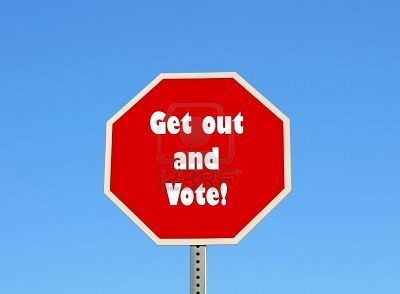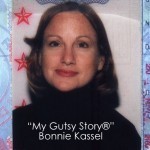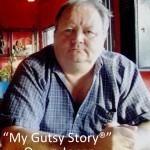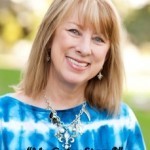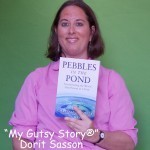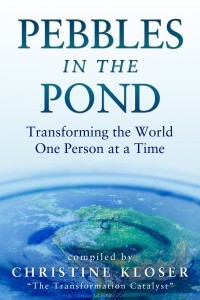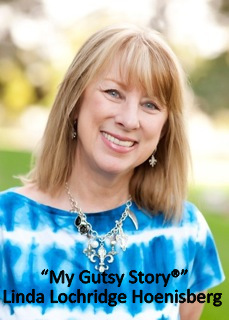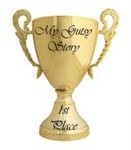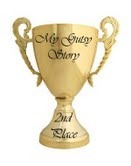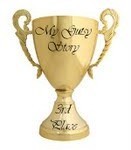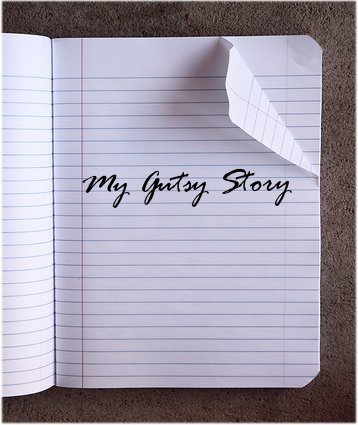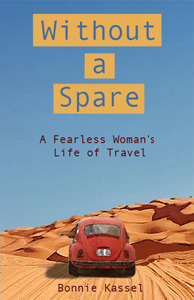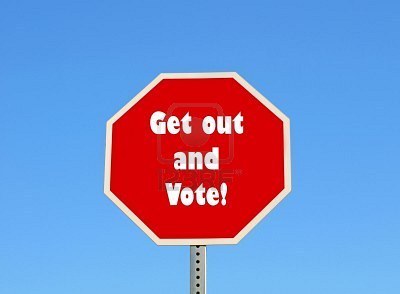Sonia Marsh's Blog, page 31
March 28, 2013
Vote For Your Favorite March “My Gutsy Story®”
Can you believe it’s already time to VOTE for your Favorite March “My Gutsy Story®?”
Scroll Down on Sidebar (right underneath the Anthology Book Cover) to Vote. Only ONE vote each.
Our first author is Bonnie Kassell.
Bonnie shares her “Gutsy” adventure as a young woman driving through the the Sahara desert and says, “Only when I was older did I realize how deeply I was marked by my travels and how everything I am and do grows from them.”
Our second author is Owen Jones.
Owen has an intriguing “spy” story about a Russian dissident and him. His life seems to be full of “gutsy” adventures, as he now lives in a small village in northern Thailand.
Our third author is Linda Lochridge Hoenisberg.
Linda has conquered so many obstacles in her life from grief, to divorce to single motherhood and a brain tumor. An amazing “My Gutsy Story®.”
Our fourth author is Dorit Sasson
Dorit shares how journaling and writing has helped her cope with social and emotional isolation.
***
If you have a second, please click on my “Ticket to Give” so I can travel back to Central America and give TOMS shoes to poor kids in need. See more about it here.
***
Do you have a “My Gutsy Story®” you’d like to share?
NOW is the time to submit your “My Gutsy Story®.” Please see guidelines below and contact Sonia Marsh at: sonia@soniamarsh.com for details.
You can find all the information, and our new sponsors on the “My Gutsy Story®” contest page. (VIDEO) Submission guidelines here

March 25, 2013
“My Gutsy Story®” Dorit Sasson

“The Best Time to Get in My Way”
I’d like to think that teaching English to Israeli schoolchildren was the ultimate cultural journey, but my life coach saw it as one that would allow me to connect all the dots of my life purpose and help guide me forward.
It all began in March of 2011, when she asked in an email: “Where do you think your life story could lead you – if you allowed it to lead the way? What do you think you could gain, both personally and professionally, if you came out fully with your life story?”
After years of living on a kibbutz and teaching English to Israeli schoolchildren, both my husband and I felt we needed a professional change. We decided to try our luck in a Jewish community in Pittsburgh. Unlike other newcomers from Israel we met, we didn’t have friends, family, or a job waiting.
Even though I was a returning American who spoke fluent English, I felt everyone around me was speaking another language. I had left the US in 1988 as a teenager, and came back a mom and a wife almost twenty years later. “What’s an SUV?” I would ask. “What’s Target?” But what I was really looking for was a deeper connection to family and friends. Coming back to live permanently in the US after all those years in Israel had triggered deep and painful memories from my childhood home in New York City – mainly of social and emotional isolation.
In Pittsburgh, I didn’t have the support system that most women my age with young children had, and I had another problem – I felt like an outsider. I was uprooted. At times it seemed that the strangers sitting next to me on a bus were my only family. Perhaps they could even understand me at that moment. Maybe because they looked lonely too. I didn’t know how to react to this new environment at first, so I started a journal to help me cope with the social and emotional isolation I felt from sacrificing my own home, family, and friends. I recorded what people said and how they looked – no matter how painful the scenario – in order to get perspective. Sometimes the small-town mentality of Pittsburgh was too friendly and it unnerved me. Other times it was too unsettling. The theme of “finding a connection in a world of darkness” very quickly emerged in my writing.
Flashbacks were everywhere. If I heard a chopper, I would immediately flash back to the news of a terrorist attack. When I stood in front of twenty quiet, motivated, and eager ESL (English as a Second Language) adult learners, I kept waiting for that Israeli high school student to speak with chutzpah, as they say, with audacity.
During that first year, I said to my adult ESL students, “We share a global language. I know what it’s like to live in a foreign country and be misunderstood, alone, and isolated. I know what it’s like to give up everything for the sake of something new and unfamiliar.” They smiled. Like a bowl of hot chicken soup, my words warmed them.
Up to that point, no one had ever “heard” or “seen” me in my writing, but in the program I had the chance to finally strip myself down. I shared some of my snippets of writing with other professional women. They loved the imagery and the feelings they evoked, and how I tapped in to my “now guidance” to help me step into my own light.
One day, I got this email from my life coach: “My very strong sense is – there’s a whole new path waiting for you. It will make use of your talents as a storyteller, your training as a teacher, your very natural gifts for connecting with those who feel like they ‘don’t fit in,’ and your brilliant gifts as a writer.”
This really spoke to me. Could this be the big break I was looking for?
Being heard and seen gave me a reason to let my soul shine for myself and for others. There was a certain magic that happened in the following months, when I felt recognized and valuable.
How many times had I wanted to say something and didn’t? How many times had I tried to transform the silence into something creative? When I was surrounded by other English teachers in Israel, I felt like a foreigner because everyone came from different worlds. When I was among native Israeli-born teachers, I stayed silent because I knew I was “the English-speaking American” who wasn’t taken seriously.
I created a blog called “The Voice of My Life Story” that allowed me to experiment and let people see my “pain stories.” For example, in the post “Finding My Tribe: From Israel to Pittsburgh,” I describe the process of hearing two different voices from two different linguistic settings, always trying to remember where I came from.
I got comments like:
“I like what you shared about acculturation.”
“Very personal and heartfelt. You have found yourself and you know where you are going. Good for you.”
“This is eye opening and should make every reader who is native to the United States have some empathy for those who have chosen to come here. Thanks for sharing your insight.”
“Wow, love this post, all the tribes we have joined, and continue to join daily!”
People were actually reading and commenting on my writing. Wow! In creation mode, my enthusiasm about my new direction jumped. The new blog made it real.
I take this as a sign that my purpose is slowly aligning with the universe.
And so each morning, I gracefully welcome in my tribe and all possibilities of who I can be.
Dorit Sasson Bio: Dorit Sasson, The Story Mentor, is founder of Giving Voice to Your Story and Market Your Compelling Story with Passion System that shows you exactly how to attract more clients using your compelling story. To get your F.R.E.E. 2 part MP3 teleseminar series and receive her bimonthly marketing & story success articles on attracting ideal clients, visit http://www.GivingVoicetoVoicelessBook.com
Please visit Dorit’s website, and join her on Twitter @DiversityCoach1
and on Facebook.
Here is where you can get a copy of Dorit’s book.
Sonia Marsh Says: I am intrigued by your concept of “looking for was a deeper connection to family and friends.” I can relate to what you said about not belonging or perhaps the word is being “accepted” in any one particular country. You made me realize through your writing, that this may be the reason why you, and I, look for those meaningful connections. I also admire that you have a natural gift for connecting with those who feel like they ‘don’t fit in.’
***
Please vote for my “Ticket to Give” so I can give TOMS shoes to poor kids in need. See more about it here.
***
Do you have a “My Gutsy Story®” you’d like to share?
NOW is the time to submit your “My Gutsy Story®.” Please see guidelines below and contact Sonia Marsh at: sonia@soniamarsh.com for details.
Please read and share our other March 2013 “My Gutsy Story®” by Bonnie Kassel, Owen Jones, and Linda Lochridge Hoenisberg
You can find all the information, and our new sponsors on the “My Gutsy Story®” contest page. (VIDEO) Submission guidelines here

March 21, 2013
I Used to Hate Public Speaking Until…

Sonia Presenting Malibu Bank of Books
Public speaking is something we all fear, but guess what?
You may discover something about yourself you never knew.
For me, this happened the other evening at the Costa Mesa library.
Just like anything else in life, the more you do it, the more comfortable you get. It’s the anticipation that causes anxiety, but once you get going, things seem to flow.
So what changed within me the other evening at the library?
No one showed up.
Yes, you heard me. No one except the librarian, a nice guy named Chris, and his assistant.
Chris said, “We’d like to hear your story, so why don’t you start.”
As soon as I started my power point presentation, three people joined us. I connected with this small group and realized, I am having a wonderful time motivating others to take risks in life, and follow their passions. I am helping people realize that we can always find excuses to not pursue our dreams, and so we postpone them.
I realized that I have a powerful story and message to share, and while looking at my small audience, these people were entertained and totally focused on what I had to say. I felt a rush of adrenaline, and came to the realization that:
Motivating others to stop postponing their dreams causes a reaction I never expected:
While motivating others, I discovered that I also motivate myself to keep going.
It all started in 9th grade when fellow classmates made fun of me during my first speech. I have made it my mission to be “gutsy” and overcome this fear.
Here are some tips that work for me.
Don’t let pretentious people make you feel inferior.
Be yourself
Connect
Talk about something you love
Smile
Don’t act pretentious or superior towards others
Make fun of yourself.
Relax
Have a message to share
It feels so good when you can make a difference and motivate one person to follow their dream.
Here is an example of a presentation I made at Malibu Bank of Books indie bookstore on 2-9-13
So I plan to make it my goal to be just like Oprah, who wrote in the April 2013 “O” Magazine:
“When it comes to matters of the heart, emotion, connection, and speaking in front of large audiences, I thrive.”
What about you? Do you enjoy public speaking?
Please vote for my “Ticket to Give” so I can give TOMS shoes to poor kids in need. See more about it here.
***
I wish to thank Bonnie Kassel who wrote a “My Gutsy Story®” and introduced me to Ionia, a book reviewer on Amazon. She gave me an amazing 5 star review and I am so grateful to her. Here is Ionia’s bio:
Ionia Martin is a book reviewer, mother of four and a Ph.D. student in the field of brain and cognitive Science. She has a passion for books, music and photography. When she doesn’t have her nose buried in a book, she likes to spend time working on her charity, dedicated to animal welfare, which should be in full operation late this year. You can find her at http://readfulthingsblog.com or at Twitter via @readfulthings
Do you have a “My Gutsy Story®” you’d like to share?
NOW is the time to submit your “My Gutsy Story®.” Please see guidelines below and contact Sonia Marsh at: sonia@soniamarsh.com for details.
Please read and share our other March 2013 “My Gutsy Story®” by Bonnie Kassel, Owen Jones, and Linda Lochridge Hoenisberg
You can find all the information, and our new sponsors on the “My Gutsy Story®” contest page. (VIDEO) Submission guidelines here

March 18, 2013
“My Gutsy Story®”Linda Lochridge Hoenisberg
My brother, sister, and I were raised alongside a Chihuahua, a hamster, and a lizard in Los Angeles, California. The lizard’s name was Fluffy. The hamster and Fluffy were eventually buried in the backyard alongside various goldfish. I considered them lucky. My parent’s raging alcoholism did not affect them at all.
My sister and I reacted to our upbringing by landing ourselves in juvenile hall. My brother lied about his age and took off for Viet Nam soon afterwards.
The background of our lives paved the way for each of us, the entire family, to experience mental illness first hand. My mother’s anxiety caused her to quit leaving the house for much more than food or drink by the time I entered my twenties. I was on my way to serious panic disorder by then. I never left my apartment at all, preferring instead to feel like I was having a heart attack from the comfort of my own home. My brother, suffering from major depression, took his own life when I was twenty-four, and three years later, my father followed suit.
But I was determined to make it in this world, and with three children in tow, I worked hard to build a life for us. It worked for quite awhile, although it had that “by the skin of my teeth” feel to it.
As I encountered life, death and unrelenting grief, divorce, and single motherhood, I tried to remember just one thing: “Love your God with all your heart, all your soul, all your strength, and all your mind. And love your neighbor as yourself (Luke 10:27).” No matter what I experienced, I made sure my children knew I loved them more than life itself.
I held various jobs over these years. I talked a dentist into training me to be his assistant. This worked out well until, losing a husband to divorce and a mother to cancer, I began to forget when to hand him the rubber dam and when he wanted the root elevator. Then I worked at Superior Court of Santa Barbara County as a commissioner of civil marriages. One sunny Saturday morning I waited for the happy couple to arrive at the courthouse. When they arrived naked and wrapped in nothing but sheets I almost called the police. Then I noticed the grape-leaf garlands on their heads and a small sign with an arrow pointing to my office: “Toga wedding this way.”
But there was one job I really wanted and couldn’t have. I wanted to become a psychotherapist and help other hurting people who had also lost their way. The trouble was, something like that took many years of college, and I had gotten kicked out right after the tenth grade, right along with my 1.0 grade point average.
Then something happened that would change my life forever. Right before my fiftieth birthday, I fell down an entire flight of stairs. Instead of tumbling, like you see in the movies, I bounced down the stairs upright and kept landing on my feet. It may have worked out all right if I hadn’t been going 40 miles per hour. About four steps from the bottom, I pitched forward and broke my neck on a doorframe. I lay in a heap at the bottom of the stairs, alone in the house. Perfect, no more sitting behind a computer or answering phones.
So, after a year of recovery, I started college, using my injury as a catalyst for fulfilling my dreams. Four years later I graduated Maxima cum Laude at one of the top private colleges in the Western United States. I also got accepted into a competitive masters program the following Fall semester. Unfortunately, there was a slight delay.
Late that summer I was diagnosed with a brain tumor. Two neurosurgeons apologetically told me it was inoperable because it was situated at the base of my skull. I had about a year to live. I decided to use the research skills I had just developed and got onto an online forum, which led me to a famous neurosurgeon in Los Angeles. He agreed to help.
After a six-hour extremely risky brain surgery, I was sent home in a wheelchair. I couldn’t walk; I had double vision; I lost half my hearing, and my perception was off. I also had a loud buzzing sound in my head that woke me between ten to fifteen times a night and I suffered terrible fatigue. But lying in bed again, I hatched a plan. What would it hurt if I got my masters degree anyway? Possibly, I would recover enough to use it, and if not, no harm, no foul. My wonderful husband backed me all the way.
Soon I was reading textbooks by holding them a few inches from my face and writing papers on a laptop I placed on a pillow on my legs. By the end of the first year, I had enough energy to attend a weeklong residency out of state by using an electric scooter to get around. By the end of the second year I attended my second residency without using the scooter at all. Soon I was able to do a 10-hour-a-week practicum, then a 30-hour-a-week internship. Finally, I pushed myself to work a full time job at an agency serving abused and neglected children in order to fulfill my licensure requirements.
I am now a psychotherapist in a thriving private practice. I work with teenagers and adults who are hurting, scared, and stuck. I teach them skills to navigate life. And I’m not done yet. I’m a writer, a speaker, a grandmother of ten and a great-grandmother of a sweet little boy. A great-granddaughter is soon to arrive. I’ve become the matriarch of a large, happy family. My favorite quote is “It’s never too late to become what you might have been,” by George Eliot.
Linda Lochridge Hoenisberg Bio: Linda Lochridge Hoenigsberg is a writer, speaker, and a psychotherapist in private practice. She is a strong believer in the fact that no matter what life has handed us, it’s never too late to become what we might have been. She is married and the mother of three, grandmother of ten, and great-grandmother to one, with her second great-grandchild arriving soon. She lives in the beauty of the Rocky Mountains with her husband and their golden doodle, Emma.
Please check out Linda’s website and follow her on Twitter: @lhoenigsberg
Sonia Marsh Says: Linda, you have conquered so many obstacles in your life and all I can say is how you deserve a medal for your courage and determination, and for not giving up. What a message for all of us to read.
***
I am asking you to please vote for my “Ticket to Give” so I can give TOMS shoes to poor kids in need. See more about it here.
Do you have a “My Gutsy Story®” you’d like to share?
NOW is the time to submit your “My Gutsy Story®.” Please see guidelines below and contact Sonia Marsh at: sonia@soniamarsh.com for details.
Please read and share our other March 2013 “My Gutsy Story®” by Bonnie Kassel, and our second by Owen Jones.
You can find all the information, and our new sponsors on the “My Gutsy Story®” contest page. (VIDEO) Submission guidelines here

March 14, 2013
Winner of the February “My Gutsy Story®” Contest
Congratulations to Sandra Bornstein, the winner of the 2013 February with an amazing 304 votes, more than 50%. I think this may be a record # of votes since the contest started.
Sandra, I love reading about adventures abroad, and admire your teaching in India. Good luck with your memoir.
Sandra, a quick request: Can you send your fans over to vote for my “Ticket to Give” so I can give TOMS shoes to poor kids in need?
In 2nd Place with another 222 votes, amazing, is Anne Loney with her story of courage and how she is now helping other women who are in abusive relationships.
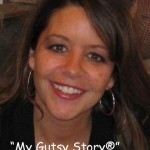
Anne Loney
In 3rd Place, Diane Danvers-Simons. She has overcome fears in life and is now starting her own workshops called, “Own it, Feel it, Live it.”
In fourth place with a heart-warming true story of long-lasting love, is Douglas Cooper
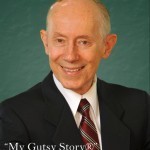
Douglas Cooper
Thank you so much to all four of you. You are all winners.
***
Please help me out and vote for my “Ticket to Give” so I can give TOMS shoes to poor kids in need? See more about it here.
Do you have a “My Gutsy Story®” you’d like to share?
NOW is the time to submit your “My Gutsy Story®.” Please see guidelines below and contact Sonia Marsh at: sonia@soniamarsh.com for details.
Please read and share our first March’s 2013 story by Bonnie Kassel,and our second by Owen Jones.
You can find all the information, and our new sponsors on the “My Gutsy Story®” contest page. (VIDEO) Submission guidelines here
***

March 11, 2013
“My Gutsy Story®” Owen Jones
“The Russian Dissident Viktor Fainberg and Me.”
I studied Russian Language and Soviet Studies at Portsmouth University (UK) between 1972 and 1976. Never having studied Russian before, I had to do the Russian ‘A’ Level in the first of the four years.
Part of my course was the history of the Soviet Union, which obviously included Russia. The Russian history lecturer was Dr. Pavloff, who had studied at Berkeley University, California.
Dr. Pavloff was no fan of the Soviet Union and was heavily involved in the Russian dissident movement. In our second and third years, we were allowed to go to the Soviet Union for six weeks a year to improve our language skills.
The trips were always accompanied by a lecturer and my first trip was to be led by Dr. Pavloff. However, the Soviets refused to grant him a visa, so he couldn’t go.
He and I got on very well and a few weeks before we were to go, Dr. Pavloff asked me if I would meet a friend of his Viktor Fainberg, who was a famous Russian dissident (see Wikipedia for details).
Mr. Fainberg had become famous for demonstrating on the Red Square with Larisa Bogoraz, Konstantin Babitsky, Vadim Delaunay, Vladimir Dremliuga, Pavel Litvinov, Natalya Gorbanevskaya and Tatiana Baeva in 1968 against the Soviet invasion of Czechoslovakia.
Mr. Fainberg had spent years in corrective camps and psychiatric wards for dissent against anti-Semitism and dictatorship. Anyway, I met Viktor with Dr. Pavloff in the Wiltshire Lamb public house in Portsmouth in the summer of 1974 when I was 19.
We talked in a mixture of Russian and English, partly because my Russian was not good enough and nor was his English and partly to discourage eavesdroppers overhearing our conversation. Dr. Pavloff translated both ways for us too.
We talked about this and that for about an hour then Viktor asked me if I would do a favour for him when I went to the Soviet Union. I agreed, so he gave me a sealed envelope within an open envelope. He said that the inner envelope contained a letter to his son, who was still trapped in Leningrad.
The inner envelope carried no address for security reasons, but the outer one bore contact details. I was to memorize them and destroy it before boarding the plane. He described his son in some detail and told me about his background so that I might better recognize him as he was shy and retiring.
He also asked me to distribute a dozen Russian Bibles for him, which he would get to me later. I knew that Bibles were banned in the USSR. Dr. Pavloff would supply them just before we set off for Leningrad.
One day, about two weeks into the trip, I met a girl on the Nevsky Prospekt. That happened several times a day, because foreigners stood out by their clothing. She asked me if I would like to go back to her parent’s flat for a meal and help her with her English homework. She was about 21, so I supposed she was a university student too.
I went with her and while she cooked, I talked to her father. We got on well, but that is another story. Just before leaving, I had a brainwave. Public phones were traced, so I asked if I could use his. I rang Viktor’s son and arranged to meet him outside our hotel in 30 minutes.
I stood on the corner about five minutes early and saw a very nervous-looking young man walking towards me. His eyes flicked from side to side and at me. He fitted the description, so I took a step towards him when he was about four feet away.
Suddenly, I was tapped on the shoulder and the nervous man changed direction sharply and walked away. I turned to see a well-dressed man with the looks and physique of a film star standing there beaming at me. He held out his hand:
“Hello”, he said, “I am Viktor’s son. How is my Dad? You just rang, so I dropped everything to meet you. Let’s go in here and you can tell me everything over a cold beer”.
This man spoke with an American accent, but the man on the phone only spoke Russian. This man was confident. The man on the phone had been frightened and this man was leading me into a valuta bar, a foreign currency only bar, where Russians were not allowed to go.
We talked for an hour and he kept ordering more beer for us. He wanted to know where ‘his father’ was; what he was doing; was he still insane; did he still hate the USSR etc, etc, but all in a jovial off-hand way as if he were talking about a wayward, silly child.
I told him a few things that I made up but did not give him the letter. I shook his hand and took his contact details which I said that I would pass on to Viktor, which I did do.
He paid the bar bill and we left the hotel bar. A car pulled up immediately and he jumped in. He was waving as it sped off.
I was left on the pavement, thinking about what had just happened. Viktor’s son’s phone must have been tapped – I hadn’t thought of that.
I was thinking that it might be better to ponder it over another beer, when I saw the first man across the road. He was walking up and down a 10 foot stretch very quickly, turning on his heels to walk back and forth, but his gaze never left me.
I ran across the road and as he turned to run off, I grabbed him, said in Russian ‘Your father is thinking of you’ and stuffed the envelope into his hand. He looked at me from a few inches with tears in his eyes and he took off without looking back.
I don’t know whether the nervous man was Viktor’s son or not, but I know that the film star definitely wasn’t.
Owen Jones Bio: Owen Jones was born in Barry, South Wales, where he lived until going to Portsmouth to study Russian at 18. After finishing his degree, he moved to s’Hertogenbosch in the Netherlands where he lived for ten years.
At 32, Owen moved back to Barry to work within his family’s construction company, first as a painter and then as a director, or, as the bank once corrected him, a painter and decorator. He was also office manager for ten years.
At the age of 50 Owen moved to Thailand to live with a Thai girl that he met while there on holiday. He married the woman and now lives in her village of birth in remote northern Thailand.
Owen Jones published ‘’Behind the Smile’’ and you can visit his website here.
Sonia Marsh Says: This is an intriguing “spy” story. Your life seems to be full of “gutsy” adventures. I know you live in a small village in northern Thailand today which sounds interesting to someone who lives in a crowded city.
***
VOTE NOW for your favorite February “My Gutsy Story®” submissions.
Please vote for your favorite story. You have until March 13th to vote, and the winner will be announced on March 14th. Good luck to all your great stories.
SCROLL DOWN ON SIDEBAR (right underneath the Anthology Book Cover) TO VOTE. Only ONE vote each.
Do you have a “My Gutsy Story®” you’d like to share?
NOW is the time to submit your “My Gutsy Story®.” Please submit to sonia@soniamarsh.com.
You can find all the information, and our sponsors on the “My Gutsy Story®” contest page. (VIDEO) Submission guidelines here

March 7, 2013
Please VOTE for me so I can give shoes to kids in need

Blake Mycoskie founder of TOMS shoes
When I hear that kids cannot attend school because they don’t have shoes, I know something is wrong. In fact, it brings back memories of when I volunteerd at a Mayan village in the heart of Belize.
I heard Blake Mycoskie, the founder of TOMS shoes share a story about his trip to Argentina where a woman ran up to him in tears. At first he thought they were tears of sorrow, and after hearing her story, Blake found out why she was so happy.
This is what she told Blake.
On Monday, my oldest son gets the pair of shoes and can walk to school. On Tuesday, it’s my middle son who gets to wear the shoes and attend school, and on Wednesday it’s my youngest son’s turn. Now thanks to your shoes, my three sons can go to school.
As I mother of three sons, I’m thinking, two kids get to attend school twice a week and the youngest only once a week.
After living in Belize, Central America for one year, I learned that education is something kids in third world countries really want. Unlike many children in the developed world, kids in poor countries are excited about the privilege of going to school. They want an education.
Here is a snippet from Blake Mycoskie’s talk at the 2013 LA Times Travel Show:
Blake has given away 2 million pairs of TOMS shoes in fifty countries.
Now Blake Mycoskie launched his TOMS eyewear. While traveling through Ethiopia, he visited an eye clinic where cataract surgeries were offered to blind kids and adults. For only $15 to $45 per surgery, kids and adults were given their eyesight back. That’s when Blake decided to offer TOMS eyewear and for each pair sold, one person gets their eyesight back. In one year, he has helped 130,000 people get their eyesight back.
Blake Mycoskie says his “one for one” company is “like my soul mate in business.”
Just listening to Blake inspired me to enter his sweepstakes, “TOMS ticket to give.”
Please Vote For Me to Go Help Give Kids TOMS Shoes
I would love it if you could just click on the link and vote for me. I would love to be an ambassador and help give children a pair of shoes through TOMS giving away program.
Want to enter the contest yourself?
The deadline has been extended until Sunday, March 10th, and you can enter here.
Have you volunteered in a third-world country?
***
February has 4 amazing “My Gutsy Story” submissions.
Please vote for your favorite story. You have until March 13th to vote, and the winner will be announced on March 14th. Good luck to all your great stories.
SCROLL DOWN ON SIDEBAR (right underneath the Anthology Book Cover) TO VOTE. Only ONE vote each.
Do you have a “My Gutsy Story®” you’d like to share?
NOW is the time to submit your “My Gutsy Story®.” Please submit to sonia@soniamarsh.com.
You can find all the information, and our sponsors on the “My Gutsy Story®” contest page. (VIDEO) Submission guidelines here

March 4, 2013
“My Gutsy Story®” Bonnie Kassel
“Crossing the Sahara”
The pool at the American Embassy in Khartoum was the only place to go to escape the heat. It was 137 degrees when we arrived. My friend Barbara and I were so eager to see the city, we decided to ignore the temperature and went out exploring. When we didn’t return for six hours, the staff at the embassy was worried. There was no shade anywhere and we’d crawled under an uncoupled train in the yards to get out of the sun and passed out. After that, we joined the crowd and sat at a table under an umbrella on the embassy patio for most of the day. They had cold lemonade and it was the gathering place of everyone who wasn’t Sudanese. If there was another pool anywhere in Khartoum, it was a well-guarded secret.
We were excited about the prospect of crossing the Sahara from Sudan to Ethiopia, but unprepared for the information we received. In order to get the necessary permit, the vehicle had to be four-wheel drive and we needed proof we were in a convoy of at least three. Our only preparations had been splurging for a Michelin map so detailed it showed every sand dune in the desert and the wide-track tires they had talked us into getting back at the auto factory in West Germany. We planned to buy a compass in the city, but I thought the store prices were outrageous and decided we could just follow the sun.
One afternoon, two tall men in dark sunglasses sat down at our table and without introductions, bluntly told us we should get out of Khartoum. Apparently a rumor was going around town about a “surprise” coup, and there was a great flurry of activity when we arrived at the transportation ministry to try to talk our way into getting a permit to cross the desert. We lied and said we were in a convoy, they threw some papers at us, we paid and left. No one even came outside to check our vehicle. So at five o’clock the next morning, after changing a rear tire that had gone flat, we left to cross the Sahara in our red Volkswagen. Without a spare.

Crossroads. Photo credit check Bonnie Kassel’s website
Everyone should experience true desert once in their lives. It begins with no roads–just a myriad of tracks heading in all directions without a single structure for a landmark. Not one thing interrupts a completely empty horizon which makes navigating a challenge even if drivers have a good sense of direction, which Barbara and I did not. At first you playfully zigzag, such freedom to drive anywhere you want! And then the heat hits you and you stop fooling around. Travel is only for morning and late in the day. Midday we sat under an improvised blanket tarp fastened to the open car door. We had gallon containers of petrol, a trunk full of tinned food, and water that no matter what we tried, turned hot. Drinking hot water when you’re desperately thirsty keeps you alive, but not from longing for something cold.
But the nights; ah, the nights. When I was a child my parents bought me a globe at the Hayden Planetarium that they’d plug in my room and I’d fall asleep under a ceiling of constellations. It was like that. Without the sound of a bird, a leaf or branch to rustle, or the din of traffic in the distance, we experienced absolute silence for the first time in our lives. It didn’t seem we were still on planet Earth.
During my first crossing of the Atlantic on a French freighter, I loved to stand alone on the deck surrounded by nothing but the sea. You get the point quickly that we’re pretty small and much of what we spend our time doing is meaningless. The Sahara Desert of Sudan embodied this feeling. One leaves these places determined to spend more of your life doing what you love. Without having to live through some crisis, I’d learned at the age of twenty-four what really mattered to me.
When we saw five huge sand dunes on our left, we realized we were lost. The only similar sand dunes on our map were way west of where we should have been, so the “we’ll just follow the sun” plan wasn’t working very well. Barbara had seen a program on TV with tips on how to determine direction if you find yourself in a situation without any equipment. Looking for moss on a tree trunk wasn’t an option, so we tied a string to the eraser end of a pencil, planted the pencil point down in the sand, held the string taut, and indeed it cast a shadow. When I asked Barbara which direction was the shadow and she said she didn’t remember that part, we couldn’t stop laughing.
About two hours after turning and driving towards what we guessed was approximately east, we saw camel tracks in the sand and decided to follow them. No animal could survive alone, there had to be people. The two men were fabulous in their billowing indigo blue robes and white muslin head and face wrappings and they motioned for us to follow them. Back at their camp, women with jewelry-laden wrists would only peek from behind the tent opening. Before we left, the men crouched on the ground and drew pictures in the sand with their fingers to show us the way towards the Ethiopian border. As a departure gift they presented us with a tin of halvah; we gave them a large tin of canned peaches in return. They mounted their camels and through our rearview mirrors watched them running behind the car waving goodbye as we drove off. Today the thought might cross my mind that they could take all of our things, bury us and the car, and no one would ever know. But it never would have occurred to us then, and I know it never occurred to them either.
Bonnie Kassel Bio: I have been an artist and traveler all my life. Sketches I drew in Mayan jungle temples and Ethiopian Coptic churches remain a source of inspiration. The blazing saffron silks of India and copper markets of Turkey influenced my palette and led me to work in metal. Kitchens in Belgium, Morocco, and Syria changed the way I cooked. Most of the milestones in my life played out in other countries. Only when I was older did I realize how deeply I was marked by my travels and how everything I am and do grows from them.
Please check out Bonnie’s website, and like her Facebook Page
Sonia Marsh Says: I can visualize both of you, inexperienced drivers in the desert, giggling and being “gutsy” without truly realizing it at the time. In those days you simply viewed it as an adventure; today we would consider it dangerous. I love the realization that you came to Bonnie, in your twenties.
“You get the point quickly that we’re pretty small and much of what we spend our time doing is meaningless. The Sahara Desert of Sudan embodied this feeling.”
February has 4 amazing “My Gutsy Story” submissions.
Please vote for your favorite story. You have until March 13th to vote, and the winner will be announced on March 14th. Good luck to all your great stories.
SCROLL DOWN ON SIDEBAR (right underneath the Anthology Book Cover) TO VOTE. Only ONE vote each.
Do you have a “My Gutsy Story®” you’d like to share?
NOW is the time to submit your “My Gutsy Story®.” Please submit to sonia@soniamarsh.com.
You can find all the information, and our sponsors on the “My Gutsy Story®” contest page. (VIDEO) Submission guidelines here

February 28, 2013
Vote for your favorite February “My Gutsy Story®”
This time I made a quick podcast.
Please listen and vote for your favorite “My Gutsy Story®”
February has 4 amazing “My Gutsy Story” submissions.
Please vote for your favorite story. You have until March 13th to vote, and the winner will be announced on March 14th. Good luck to all your great stories.
SCROLL DOWN ON SIDEBAR (right underneath the Anthology Book Cover) TO VOTE. Only ONE vote each.
Our first story of the month is from Sandra Bornstein
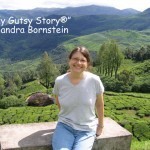
Sandra Bornstein
Our second Story is from Anne Loney

Anne Loney
Our third story is from Diane Danvers-Simmons
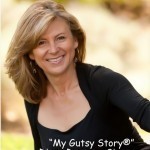
Diane Danvers-Simmons
Our fourth story is from Douglas Cooper

Douglas Cooper
I’d like to share a photo of meeting some wonderful authors from the GIP (Gutsy Indie Publishers) Facebook Group, which we’d love to have you join if you are a writer, indie author, indie publisher, or simply have questions about self-publishing.

Kas Sartori, Shelley Miller, Sonia Marsh, Elaine Masters Lois Joy Hofmann, Pennie James, Mary Gottschalk
Do you have a “My Gutsy Story®” you’d like to share?
NOW is the time to submit your “My Gutsy Story®.” Please submit to sonia@soniamarsh.com.
You can find all the information, and our sponsors on the “My Gutsy Story®” contest page. (VIDEO) Submission guidelines here
February 25, 2013
“My Gutsy Story®” Douglas Cooper

Douglas Winslow Cooper
Together Forever…At Last
Fear separated my beloved Tina and me in June 1964. Courage reunited us, in marriage, twenty years later.
Tina Han Su and I fell in love in February 1963 at Cornell University. I met her when she joined the half-dozen of us in the introductory Chinese class. Tina had started the class mid-academic-year because as you might guess from her name, she is Chinese-American and had already learned some of her parents’ native language at home. I was taking Chinese to fulfill my language requirement with something more interesting than the French and Latin I took in high school.
Tina and I enjoyed our Chinese class together six mornings a week, at 8 a.m. Often she and I then went for tea at the student union. I found her to be not only beautiful but intriguing, considerate, thoughtful, artistic…. She was a pre-med freshman and I was a junior majoring in physics. Each been “stars” in our small-town high schools, but each had to work hard to do well in this much more competitive Ivy League milieu.
Cornell was scenic and challenging, though a somewhat cold place. We provided our own warmth. We went hand-in-hand wherever and whenever we could…around campus, down to Ithaca and back, over the bridges across the gorges, sharing breakfast while looking at Beebe Lake, attending an occasional concert or lecture.
There were few Asian students on campus. Inter-racial couples were rare, but we experienced no hostility…at most an occasional stare. We had many mutual friends.
Apart that summer, we returned for my senior year, Tina’s sophomore year, knowing we might have only our three semesters at Cornell in which to be together. For my birthday in December 1963, she wrote:
Dearest Doug,
You asked me what I would think of these sixteen months a few years from now. My reply–now, after one year, after fifty years:
She then quoted much of John Donne’s, “A Valediction: Forbidding Mourning,” one of my favorite poems, the poem that I later read to Tina at our wedding in June 1984.
In it, Donne likens the connection between separated lovers to a draftsman’s circle-drawing compass, its moving foot representing the lover who must travel away, while the central “fixed foot” always leans and “hearkens after it.” The poem ends, in our case prophetically,
“Thy firmness makes my circle just,
And makes me end where I begun.”
Why didn’t Tina and I get engaged, in 1964, or even get married? In 1964 such marriages were much rarer than now. In the 1960s, some states still had laws against interracial marriage, “anti-miscegenation” statutes. We feared that our mixed-race children would not be accepted fully by many members of either race.
We were 20 and 21 years of age, too young to marry with confidence. A long engagement might have been feasible.
Both sets of parents were against our pairing, for reasons ranging from the practical to the ethnocentric. Tina was an obedient Chinese daughter. I was less obedient, but I did value my parents’ greater experience. Our marrying would have caused much family dissension.

Tina’s son, Phil Chiang
If marriage to a successful Chinese professional who loved her would be better for Tina and eventually better for any children she would have, it seemed selfish of me to stand in the way. Tina felt the same about me and my best interests.
I had been Tina’s first love. We parted in June 1964, still in love, but afraid to marry.
Where’s the “gutsy” part of our story? By February 1983, nineteen years after we parted, I had been married and divorced, engaged and disengaged. I had reason to believe that Tina’s marriage of fifteen years to a university professor of Chinese extraction had not been going well. Passing through Chicago, where they lived, I called Tina. I had to know whether she still felt for me the love I still felt for her. “Nothing has changed for me in twenty years,” she replied.
We were ecstatic. We communicated by telephone and mail. Soon, Tina told me she was afflicted with multiple sclerosis, though her symptoms were then minimal. I read about MS and was shocked: there was a substantial probability that she would become quadriplegic and ventilator-dependent. My poor, dear Tina! I spent a sleepless night considering whether I could handle such an outcome, decided I could, determined I would, and the next day by telephone, not having seen her in sixteen years I asked Tina to marry me, and she accepted.
Gutsy? “Love casteth out fear.”
When we met a month later, we were both delighted with the person each had become, both glad we had made our commitment.

Wedding with Prof. and Mrs. G. J. Su, Tina’s parents, Doug and Tina, Mrs. P.T. Cooper, Doug’s mother.
We married in June 1984, twenty years after having parted. Our wedding rings were inscribed, “A dream come true.” Even our parents now approved. Tina’s father’s wedding toast was: “Love conquers all.”
We have had twenty-eight wonderful years of love-filled marriage. The mixed-race aspect has not caused significant trouble. Step-parenting has gone very well.
Health? For the first decade, Tina could walk slowly, drive adequately, enjoy life fully. Then, in 1994, breast cancer struck, treated successfully with a mastectomy and some chemotherapy. Later that year, MS finally took away Tina’s ability to walk. With some help, I cared for her at home.

Doug his wife, Tina and his stepson
Twenty years into our marriage, in 2004, Tina nearly died from an MS exacerbation that led to a raging systemic infection. After 100 days in the critical care unit of our local hospital, Tina was dangerously weak, quadriplegic, permanently dependent on a ventilator, not expected to live more than a few months, and given the choice of “home or hospice.”
We chose home, with around-the-clock skilled nursing care, and we have had the gift so far of eight additional very happy years.
Engraved on the gold heart charm I gave Tina for her bracelet in celebration of our 25th wedding anniversary is our motto: “Together forever!”
We have never regretted our “gutsy” choice, to pledge to marry…sight unseen.
***
Douglas Winslow Cooper Bio: Douglas Winslow Cooper is a freelance writer and retired physicist, currently helping to manage round-the-clock care of his wife, Tina, who has multiple sclerosis and is quadriplegic. Cooper earned his A.B. and M.S. degrees in physics from Cornell and Penn State and a Ph.D. in engineering from Harvard. He served at the U.S. Army biological warfare labs at Ft. Detrick, MD. An idealistic, rational optimist, he has been active in politics, and his professional life centered on environmental issues. He served as Assistant and then Associate Professor of Environmental Physics at the Harvard School of Public Health and was Research Staff Member at IBM‘s Yorktown Heights, NY, Watson Research Center. Dr. Cooper was elected Fellow of the Institute of Environmental Sciences. Semi-retired, he enjoys reading, walking his dog, listening to music and writing. In 2012 he completed his first book, Ting and I: A Memoir of Love, Courage, and Devotion, now available in ebook or paperback from amazon.com, outskirtspress.com, or through his web site: tingandi.com.
Dr. Cooper recently established a business as a writing partner for those who wish to publish. With his co-author Marie Elizabeth Foglia, he published in 2012 the memoir Ava Gardner’s Daughter? and with co-author Lenny Golino the memoir The Shield of Gold, both also available from outskirtspress.com, bn.com, and amazon.com.
You can follow Doug on Twitter @douglaswcooper, and view his blog . Doug has a writing partner site.
Tina has her own blog, and if you wish to find out more about their memoir, please click here.
Sonia Marsh Says: Yours is a real-life “fairy tale” of everlasting love against all odds. In today’s society where divorce is as common as marriage, nothing can come between the love you have for one another.

Do you have a “My Gutsy Story®” you’d like to share?
NOW is the time to submit your “My Gutsy Story®” and get published in our Anthology. Please contact sonia@soniamarsh.com for details.
You can find all the information, and our sponsors on the “My Gutsy Story®” contest page. (VIDEO) Submission guidelines here
VOTING for your favorite February 2013 “My Gutsy Story®” starts on February 28th, and ends on March 13th. The winner will be announced on March 14th. We have a two new sponsors, Carolyn Howard-Johson, who is offering her e-book as a prize: The Frugal Editor, and Angela Ackerman offering a copy of The Emotion Thesaurus.
Please check out the following January “My Gutsy Story®”
Sandra Bornstein
Anne Loney
Diane Danvers-Simmons


